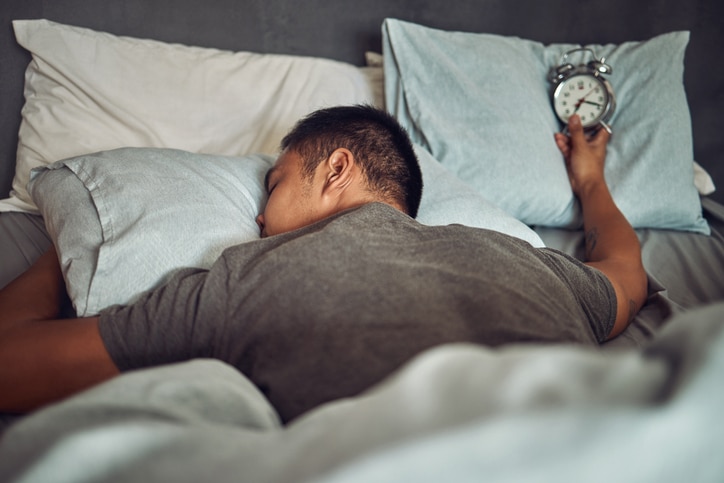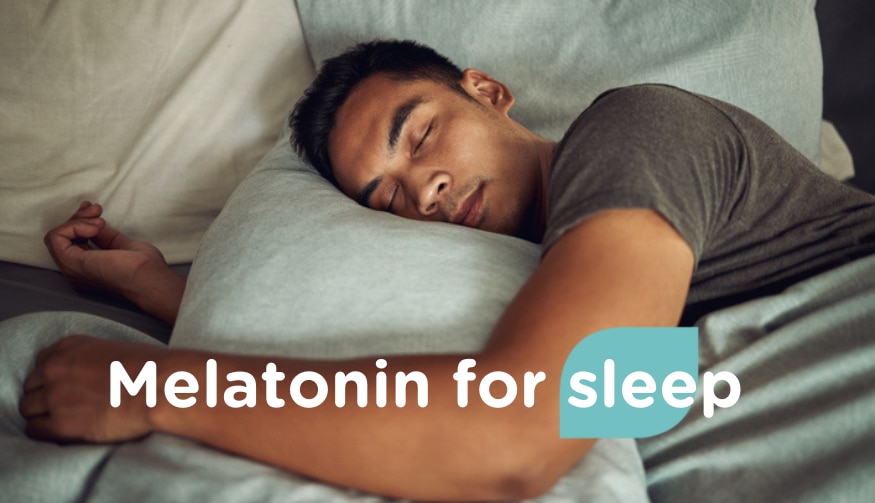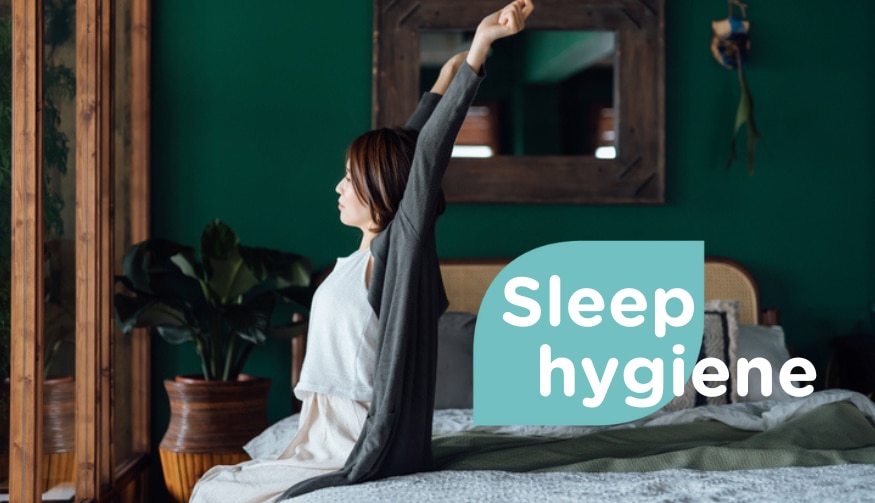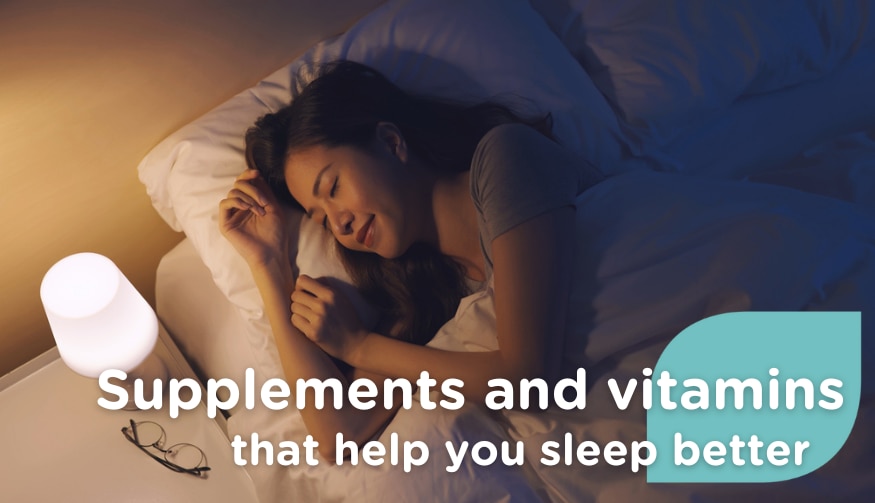What is melatonin?
Melatonin is a hormone naturally produced by the pineal gland in our brain. When the sun sets in the evening, the melatonin production level usually starts to increase. It binds to receptors in the brain to reduce nerve activities, as well as decrease levels of dopamine, a hormone that helps you stay awake. The level of production falls as the sun rises and your body is exposed to light, so that your body knows it’s time to wake up.
In short, melatonin gives your body signals that it’s nighttime and you can relax, so that you can fall asleep easier.
How do melatonin supplements help you to sleep better?

Melatonin is often called the “sleep hormone,” because of its abilities to help us fall asleep.
There are different types of melatonin supplements, including tablets, capsules, liquids and chewables. They can also be in natural or synthetic forms, with the natural form made from the pineal gland in animals. The natural form of melatonin could be contaminated by virus so it is suggested to take a synthetic type.
What side-effects does it have?
Current studies show that melatonin is safe, nontoxic, and not addictive. However, it may interact with medications, such as blood thinners, blood pressure medications, and antidepressants.
Moreover, it can bring side-effects such as:
• Daytime sleepiness
• Headache
• Dizziness
• Nausea
• A “heavy head” feeling
• Short-lived depression
* If you have concerns or questions, especially if you are taking any medicine or have a health condition, please seek medical advice before use.
How to take it safely?
Taking too much melatonin may disturb your sleep-wake cycle, and also cause other side-effects. Although it is technically possible to overdose melatonin, there is not any official universal standard dosage as some people may be more sensitive to the effect melatonin while others are less likely to be affected.
For adults who would like to try melatonin, it is suggested to start low at 0.5/1 mg in around 30 minutes before going to bed. If it doesn’t seem to help you fall asleep, move up slowly and carefully to 3 mg to 5 mg and see if there are any encouraging result. The goal is to find the lowest dose that’ll help you fall asleep.
While the “optimal” dosage for melatonin is yet to be determined, it is believed that doses in the 30 mg range may be harmful.
It is also best to follow the instructions that come with your supplement.
Young children should avoid melatonin unless otherwise instructed by a doctor.
Watsons’ best supplements to help you sleep better
Before you rush out to buy any supplements, always talk to your doctor to ensure that the supplement is appropriate for your individual needs and work together to determine an appropriate dose for you.

B Vitamins
B vitamins are vital for supporting brain function, energy levels and cell metabolism as well as help the body produce melatonin. Research has shown that maintaining sufficient levels of Vitamins B3, B5, B6, B9 and B12 may help achieve good sleep.
Vitamin D
Studies have shown that vitamin D deficiency is associated with a higher risk of sleep disorder with more disrupted sleep. So, make sure you get enough sunlight to help your body to product Vitamin D, which in fact is a hormone rather than vitamin.
Vitamin E
It is said that vitamin E can help relieve hot flushes and night sweats experienced by women in menopause stage of life, and thus improve their sleep quality.
Calcium
Ever got the advice of drinking a glass of warm milk to help you sleep better? Dairy products contain calcium as well as tryptophan, both of which help the brain to produce melatonin, a hormone that promote healthy sleep.
Magnesium
You might also consider getting some help from magnesium to release tension and muscles, which is essential to prepare your body for rest if it is suffering from sleeping disorder and insomnia.
Melatonin
Melatonin is a hormone naturally produced by the pineal gland in our brain. When the sun sets in the evening, the melatonin production level usually starts to increase. It binds to receptors in the brain to reduce nerve activities, as well as decrease levels of dopamine, a hormone that helps you stay awake. In short, melatonin gives your body signals that it’s nighttime and you can relax, so that you can fall asleep easier.
Iron
Iron helps transport oxygen throughout your body, which is why a deficiency can leave you feeling fatigued, and is also linked to restless leg syndrome, causing people to constantly feel that they need to move their legs when in bed. Iron-deficiency is common particularly among women.
Valerian root
Valerian root is commonly used as a natural treatment for symptoms of anxiety, depression, and menopause. Menopausal and postmenopausal women have seen their sleep quality and sleep disorder symptoms improve after taking valerian.











